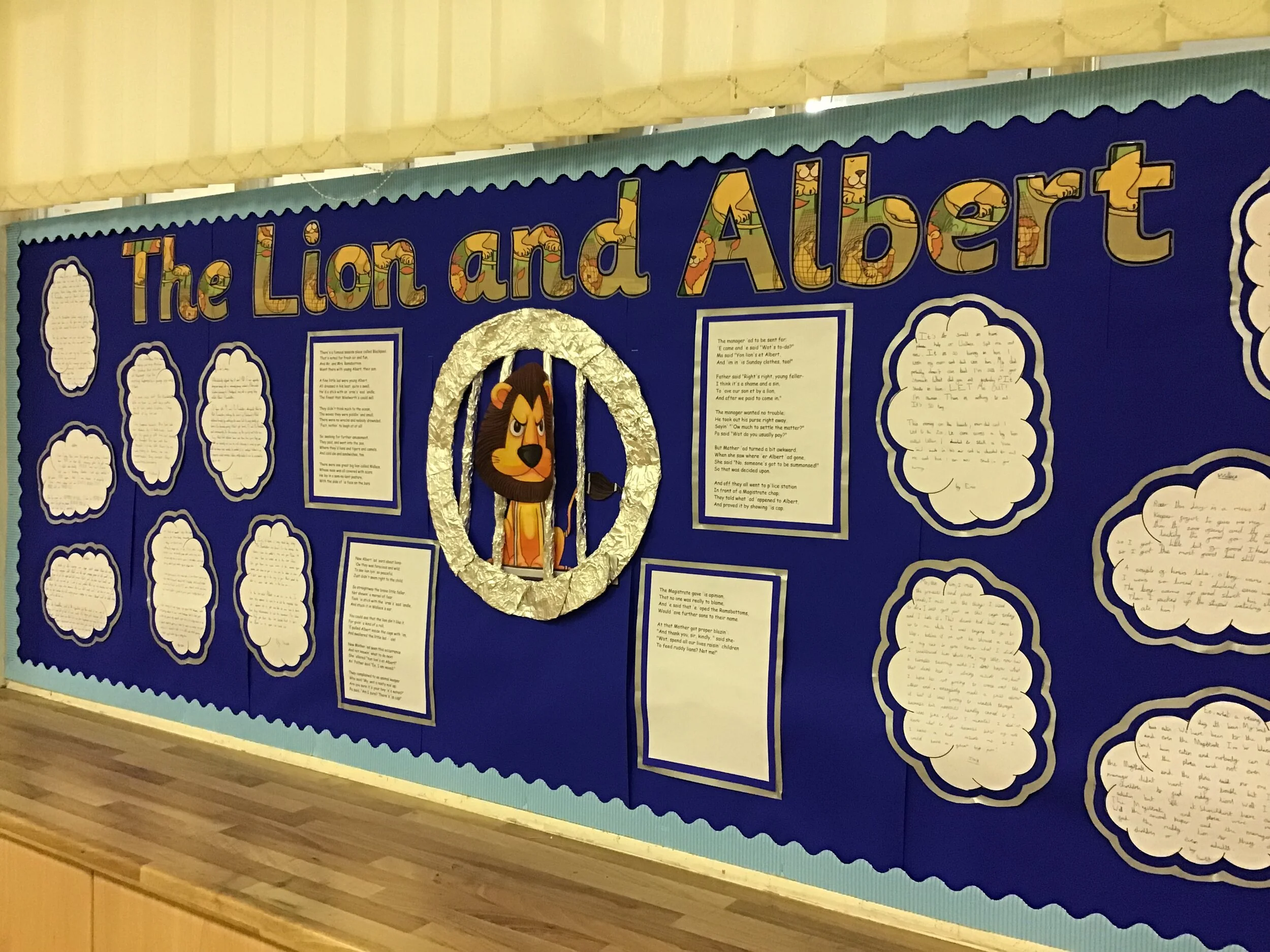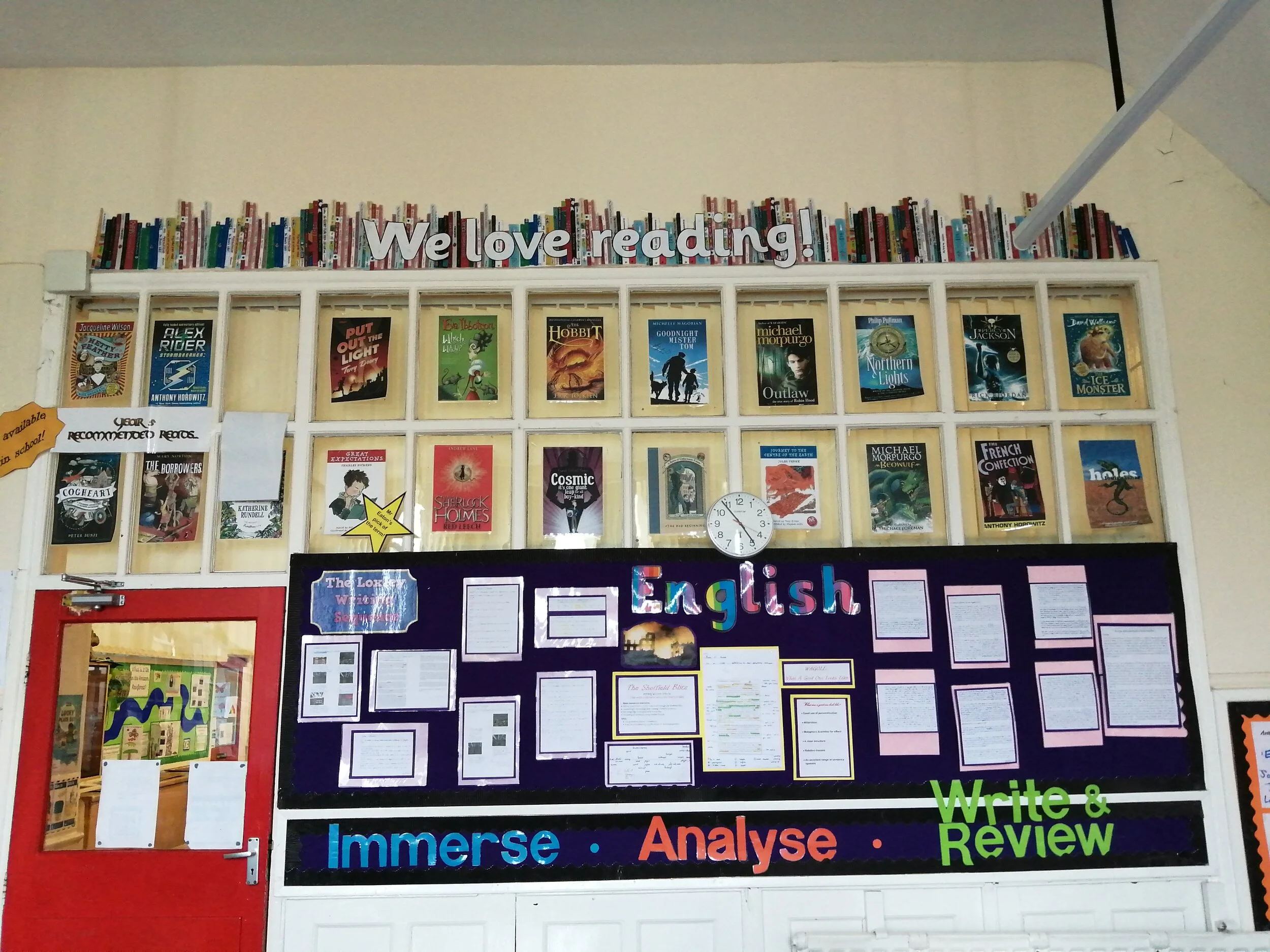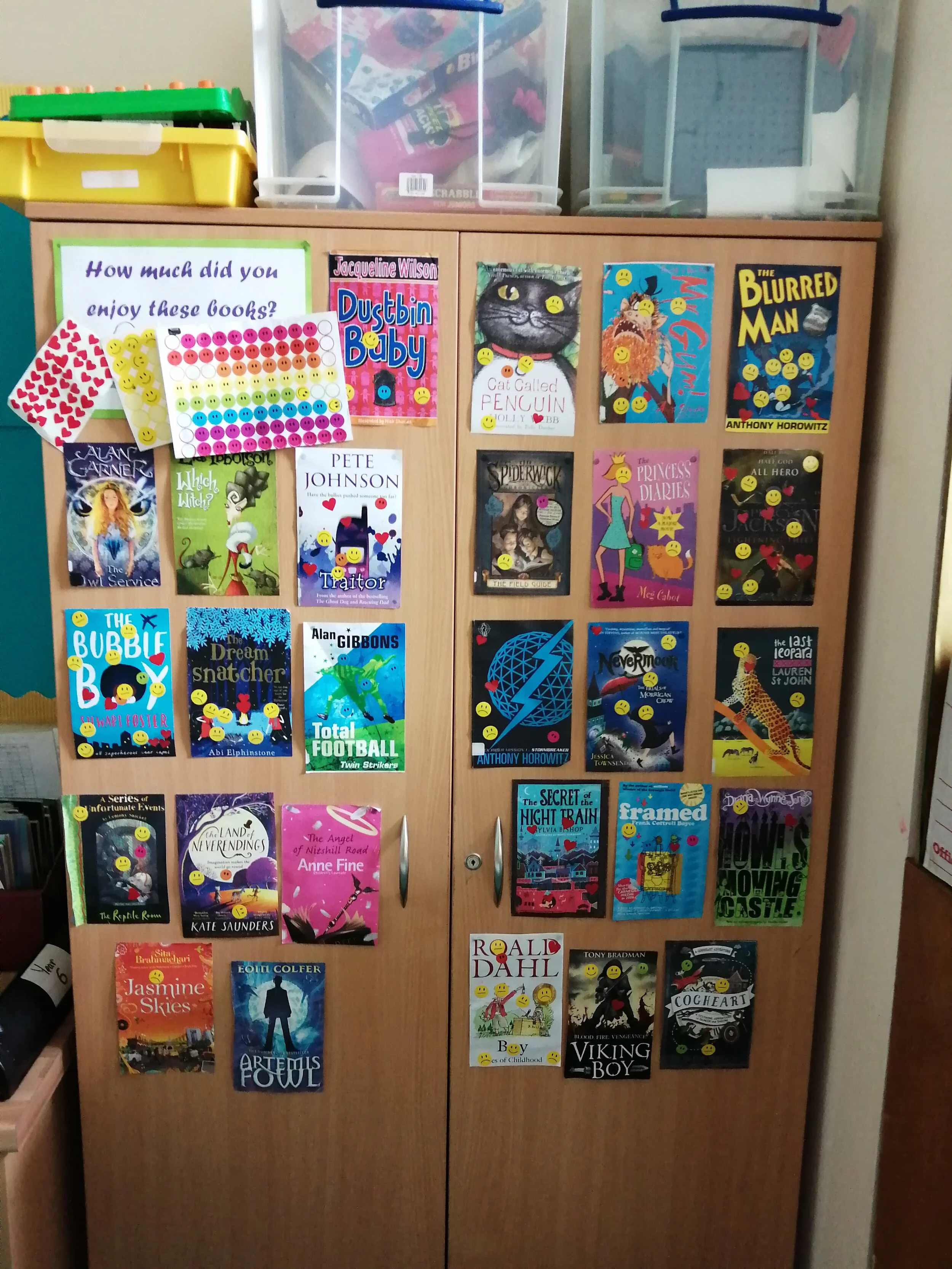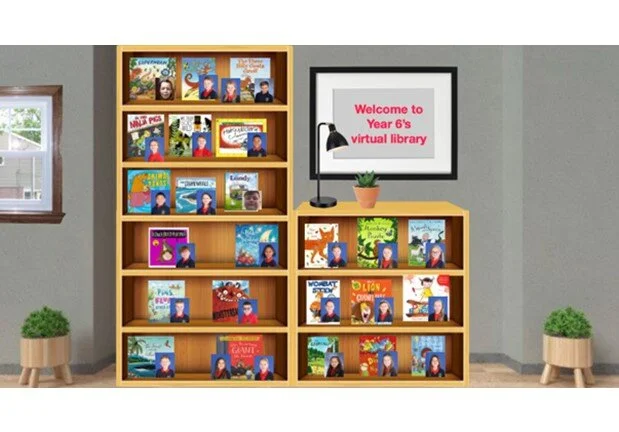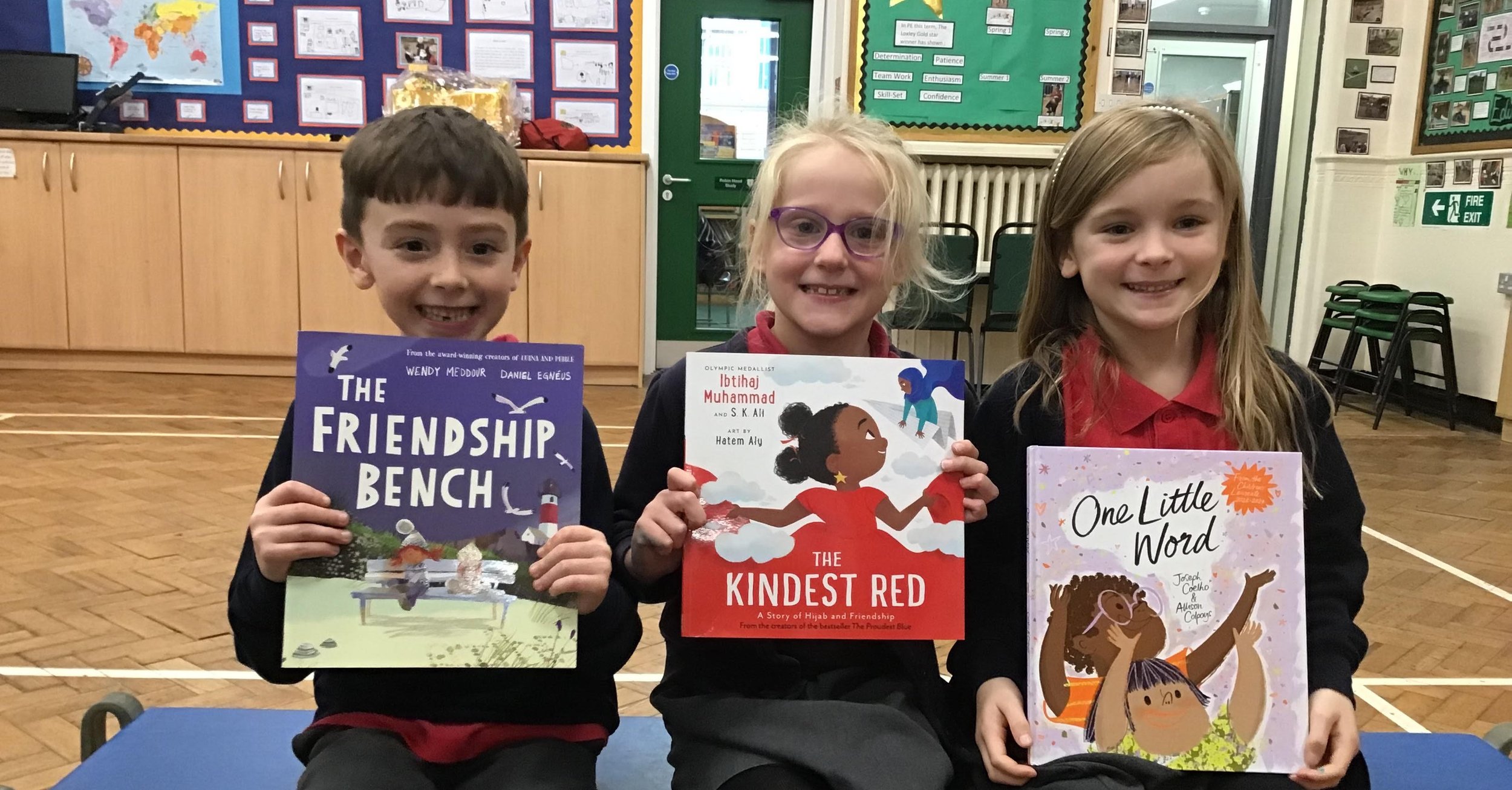
English
“Words are our most inexhaustible source of magic.”
English
A love of language and a structured system of developing reading and writing enable our pupils to comprehend and create English text with perception and precision.
Reading
Our aim is that pupils’ will develop a love of reading during their time at Loxley Primary School as an end in itself, to enrich our pupils’ lives, but also to give children the best opportunity to be confident and successful in life. We embrace these goals through quality first teaching, engaging resources and close collaboration with parents and carers. We want pupils to read a range of high quality stories, plays, poetry, non-fiction and textbooks written at age-appropriate interest level with enjoyment, accuracy and at a reasonable pace. Daily structured phonic lessons aligned with our reading scheme in KS1 enables pupils to read most words effortlessly and this is taught in conjunction with daily reading lessons for all pupils. Reading teaching places emphasis on both enjoyment and the understanding of language, especially vocabulary and comprehension of the text. By the end of Year 6, our ambition is for pupils’ reading to be sufficiently fluent and effortless so they are fully prepared for secondary school and beyond. It is imperative that reading is given the highest status within our curriculum and that its teaching is, thorough, inclusive and ambitious.
Writing
Writing is a very important aspect of learning and it permeates through our curriculum. In their Reception year, children are very much encouraged to “have a go” at writing without the fear of “getting it wrong.” There are many opportunities to write both in teacher directed activities and through continuous provision – there is always an inviting writing area within the class. This culture continues through the school where children are praised for ambitious language choices and sentence structures. We encourage children to write from the line as soon as they start writing and aim for most children to be using a cursive script by the end of Year 1 and for this to be fluent by the end of Year 2. It is important that children get regular practice and familiarity with writing and its conventions. Re-telling of simple stories helps children begin their journey into extended writing however it is important that children can make choices in their own writing too. It is also important that children learn to write in sentences; knowing what sentences are and how to punctuate them correctly. From this point, children can learn to write in a range of sentence structures which can add interest and precision to their writing, supported by their reading and punctuation and grammar learning. Throughout the age range, we give children stimulating and relevant reasons to write and try to build children’s enthusiasm and resilience when writing. As soon as children are able, we enable them to check, self-edit and peer review their work. The piece of writing across is independent writing from a Year 3 child.
Phonics and our Phonics Scheme
Being able to hear, say, read and write the smallest units of pure sound in the English language is fundamental to children’s progress. This may be learning about the sound made by a single letter e.g. “g” or a single sound made by two or more letters e.g. “sh”; this is phonics. At Loxley, we base our successful phonics teaching on the structure and progression of the Read Write Inc scheme. Please see the link to the video for parents to find out more about our phonics teaching.
Phonic Progression
First, your child will learn to read:
Set 1 Speed Sounds: these are sounds written with one letter, they are taught in following order m, a, s, d, t, i, n, p, g, o, c, k, u, b, f, e, l, h, r, j, v, y, w, z, x
Set 1 sounds written with two letters (‘special friends’): sh, th, ch, qu, ng, nk
Simple words containing these sounds, by sound-blending
Read words in carefully levelled Red, Green and Purple Storybooks.
When your child knows all their single sounds, some simple 'special friends' and has learnt to blend simple words, they move onto Set 2
To read and recognise Set 2 Speed Sounds: ay, ee, igh, ow, oo, oo, ar, or, air, ir, ou, oy
To read words containing these sounds
Read a wider range of 'red words'. (Words that cannot be read using phonic skills)
To read Pink, Orange and Yellow Storybooks, building speed and fluency.
As Your child’s confidence and ability grows, they will move onto set 3.
In Set 3, they will learn to:
Read Set 3 Speed Sounds ea, oi, a-e, i-e, o-e, u-e, aw, are, ur, er, ow, ai, oa, ew, ire, ear, ure
Read words containing these new sounds
Read further 'Red words' that cannot be read using phonic skills.
Read Blue and Grey Storybooks with increasing speed.
Growing Great Readers
Driving the reading experience we offer our pupils, is a desire to develop a genuine love of reading. We have heavily invested in high quality reading texts, which allow pupils to visit different places and eras in their imaginations. A progressive teaching sequence ensures that everyday, in every year group, pupils enjoy first quality reading teaching. In addition to this Key Stage 2 pupils complete a Reading passport, encouraging a breadth to their reading experience; our children love to share these passports with their friends, making recommendations for a next good read!
Look what the Y6 children have been doing over lockdown!
The Y6 children have been busy practising and reading stories for the younger children in school! They have chosen an appropriate book, practised their reading aloud skills including intonation and expression. Then they have recorded their stories in ‘Jackanory’ style and uploaded them to a Virtual Library! Younger children can then click on a link to be able to access the stories and enjoy listening to them either at home or at school!
Practise Makes Permanent
Reading books
We are delighted to have such a strong reading partnership with parents; the reading journey begins in foundation and Home/School reading diaries throughout school enable an instructive ongoing conversation with parents to be achieved. Our annual parents’ phonic and reading workshop is extremely well attended and gives staff the opportunity to demonstrate how phonics and reading is taught in school.
To practise the phonics taught in school, pupils take home a recently purchased phonic reading book; this is in addition to reading books that develop other aspects of reading.
We have also extended the reading scheme into Key Stage 2 to ensure there is a good match between pupils’ reading ability and the texts that they are accessing. This is in addition to a book selected from their weekly visit to the Robin Hood Study library.
We use a range of quality texts to inspire and instruct children’s language development.
